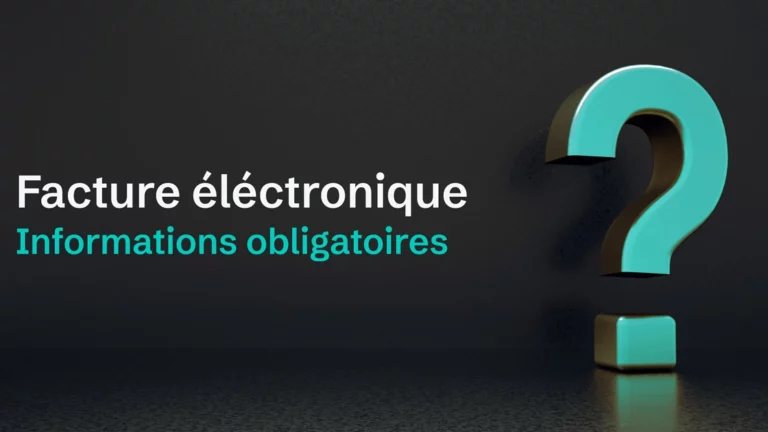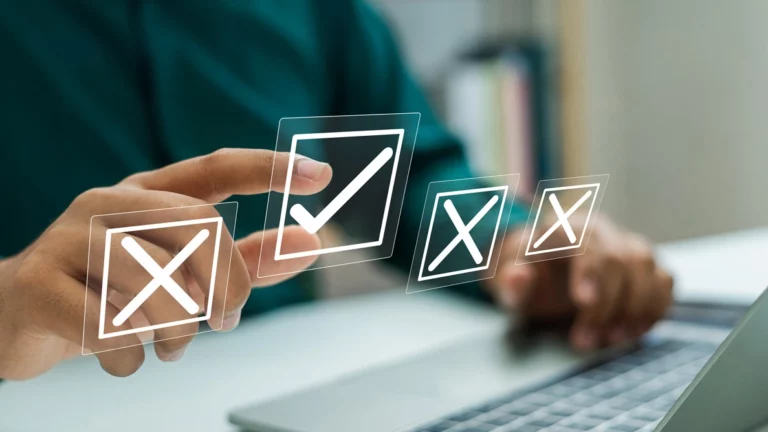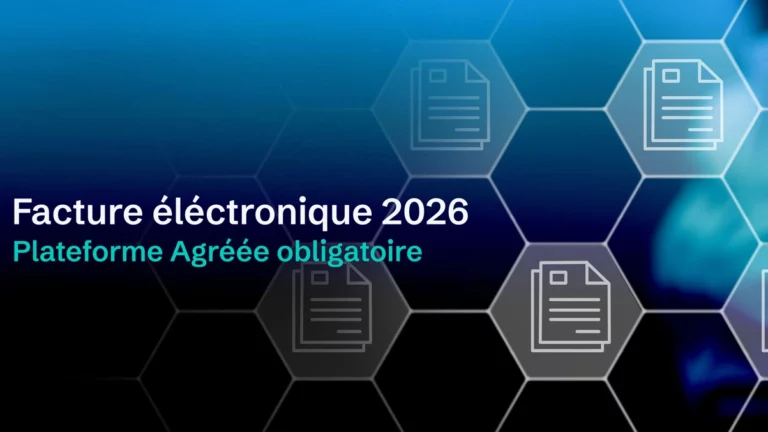The reform of electronic invoicing is much more than a simple digitalisation: it is a profound transformation of the way in which French businesses exchange invoices and communicate their transaction data to the tax authorities. Initiated by the Finance Act for 2020 and following on from the roll-out of Chorus Pro for public procurement contracts, this reform aims to modernise commercial exchanges, strengthen the fight against VAT fraud and improve knowledge of economic activity.
The Three Pillars of Reform: E-invoicing, E-reporting and E-payment
The reform is based on three fundamental concepts that will affect all businesses liable for VAT in France:
1. E-invoicing (electronic invoicing)
This is the heart of the reform. Itrequires invoices to be issued and received in a structured electronic format (such as UBL, CII or Factur-X) for all B2B (Business to Business) transactions between companies established in France and subject to VAT.
- What’s new: No more PDF invoices sent by email or paper invoices which, although “digital” or “dematerialised” for some, are not electronic invoices within the meaning of the law. Electronic invoices must be generated, transmitted and received via dedicated platforms (PDPs or Partner Dematerialisation Platforms) that guarantee their authenticity and integrity.
- Objective: to standardise exchanges, automate processing and enable the tax authorities to collect and use data.
2. E-reporting (Transmission of Transaction Data)
E-reporting is theobligation to transmit transaction data to the tax authorities for all transactions not covered by e-invoicing. This mainly concerns :
- B2C (Business to Consumer) operations: sales to private individuals.
- International B2B transactions: sales and purchases with companies outside France.
- What’s new: Businesses will have to collect and transmit summary transaction data (amount of the transaction, VAT collected, etc.) via their Partner Dematerialisation Platform (PDP).
- Objective: to provide the authorities with a global view of economic flows, even those that do not generate B2B electronic invoices, to better detect fraud and pre-fill VAT returns.
3. E-payment (Transmission of Payment Data)
Although it was initially given less prominence, e-payment is intrinsically linked to electronic invoicing. It involves theobligation to transmit the payment status of electronic invoices to the tax authorities.
- What’s new: PDPs will be responsible for informing the authorities of the status of electronic invoices (accepted, refused, paid, payment date, etc.).
- Objective: To enable the authorities to monitor the entire life cycle of the invoice and check that VAT has been correctly collected, particularly on transactions subject to debit or collection.
The Central Role of PDP Platforms
Electronic invoices and reporting data must be transmitted via a “Y” system, involving :
- Partner Dematerialisation Platforms (PDP): These are private platforms, registered by the State, which offer value-added services (automation, integration, support). They will be the preferred intermediaries for sending, receiving and transmitting data to the government.
- The Public Billing Portal (PPF – Chorus Pro): This will serve as a central platform for routing invoices between the various PDPs and centralising all the data for the tax authorities. From September 2026, businesses will no longer be able to use the PPF directly to issue or receive their invoices; they will have to go through a PDP.
The Application Calendar
The reform is being rolled out gradually to all VAT-registered businesses, depending on their size:
- 1st September 2026:
- Compulsory acceptance for all companies.
- Emission obligation for large companies and intermediate-sized companies.
- 1st September 2027:
- Obligation to issue for Small and Medium-sized Enterprises (SMEs) and Micro-enterprises (VSEs).
Why this Reform? Expected Benefits
As well as being compulsory, the reform of electronic invoicing offers significant opportunities for businesses:
- Productivity gains: automated invoice entry, processing and archiving.
- Reduced costs: elimination of paper, printing and postage.
- Security and reliability: Reduced risk of errors, lost invoices and fraud.
- Better visibility of cash flow: real-time monitoring of invoices and payments.
- Easier controls: simplification of audits and VAT returns thanks to pre-collection of data by the authorities.
- Modernising the economy: France is equipping itself with a state-of-the-art digital invoicing system, in line with what is already being done in other European countries.
The reform of electronic invoicing is an inevitable paradigm shift. Anticipating this transformation means giving yourself the means not only to comply with the law, but also to modernise your processes, become more efficient and boost your competitiveness. Now is the time to get ready!




